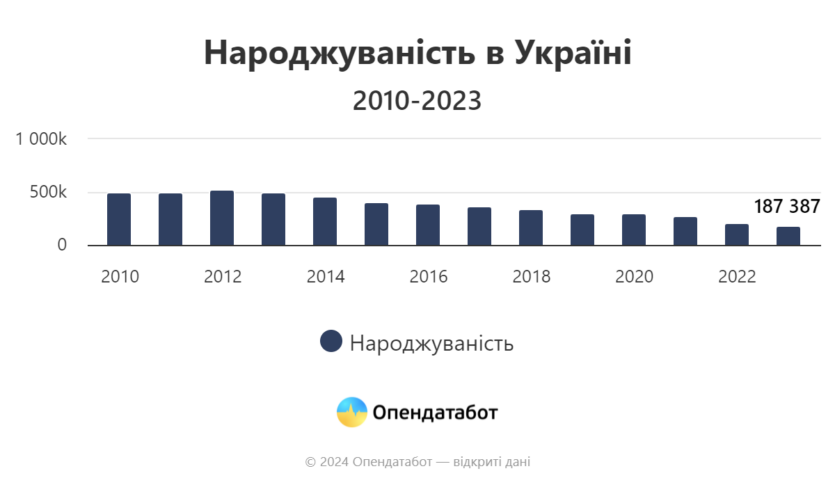Back in the 1950s, the fertility rate (the average number of children born to a woman in her lifetime) was 4.84 — but by 2021, it had more than halved to 2.23. A new study cited by CNBC predicts it will reach 1.5 in the coming decades.
«What we are experiencing now is something we have never seen before in human history. A widespread, cross-national, cross-cultural shift toward favoring smaller families», — says demographer Jennifer D. Sciubba.
The authors of the study consider many reasons for the demographic crisis, including: increased opportunities for women in education and employment, as well as better access to contraception, and changing values regarding gender equality and self-realization. The high costs of raising children and the perceived risk of their death are also among the deterrents.
Meanwhile, the projected fertility rate falls far short of the replacement level of 2.1 children per woman (the amount needed to maintain a stable population). In 2021, 46% of countries had fertility rates below replacement level —, and this number is projected to rise to a critical 97% by 2100.
A previous analysis by the Institute for Health Metrics and Evaluation (IHME) in 2022 predicted that the world’s population would reach a peak of 9.7 billion in 2064, and decline to 8.8 billion in 2100. Meanwhile, the UN’s 2022 projection called for a peak of 10.4 billion in 2080.
«Demographically divided world»
The study predicts that the share of live births in low-income regions of the world will almost double from 18% in 2021 to 35% in 2100. Sub-Saharan Africa alone will be home to every second child on the planet by 2100.
This shift in the distribution of live births will create a «demographically divided world» where high-income countries will face the consequences of an aging population and shrinking labor force, and low-income regions will maintain high fertility rates that strain available resources.
Fertility in high-income countries
High-income countries with sharply declining birth rates will experience a shift toward an aging population, putting a strain on national health insurance, social security programs, and healthcare infrastructure. According to the study, they will also have to deal with labor shortages.
The researchers suggest that ethical and effective policies that encourage immigration and labor innovation, such as advances in artificial intelligence, could help mitigate some economic impacts of this demographic shift.
The analysis also covered the effectiveness of countries’ policies aimed at increasing fertility, such as childcare subsidies, extended parental leave, and tax breaks. The projections show that the effect will be no more than 0.2 additional live births per woman.
«There is a real danger that some governments are trying to pressure women to have more children,» says Dr. Christopher Murray, senior author of the study and director of the IHME. «It’s very easy to move from encouraging women to coercing them».
Fertility in low-income countries
On the other hand, increasing fertility in low-income countries will threaten the security of food, water and other resources and further exacerbate child mortality, political instability and security problems.
According to the study, in sub-Saharan Africa, better access to education for women and universal access to contraception would lead to a total fertility rate of about 2.3 in 2050 — compared to 2.7 in the baseline scenario.
Meanwhile, in the Rada are considering the draft law which provides for an increase in child benefits from the existing UAH 41 thousand to more than UAH 384 thousand. Shmyhal noted that the money for this purpose is planned to be raised from abroad.





Spelling error report
The following text will be sent to our editors: